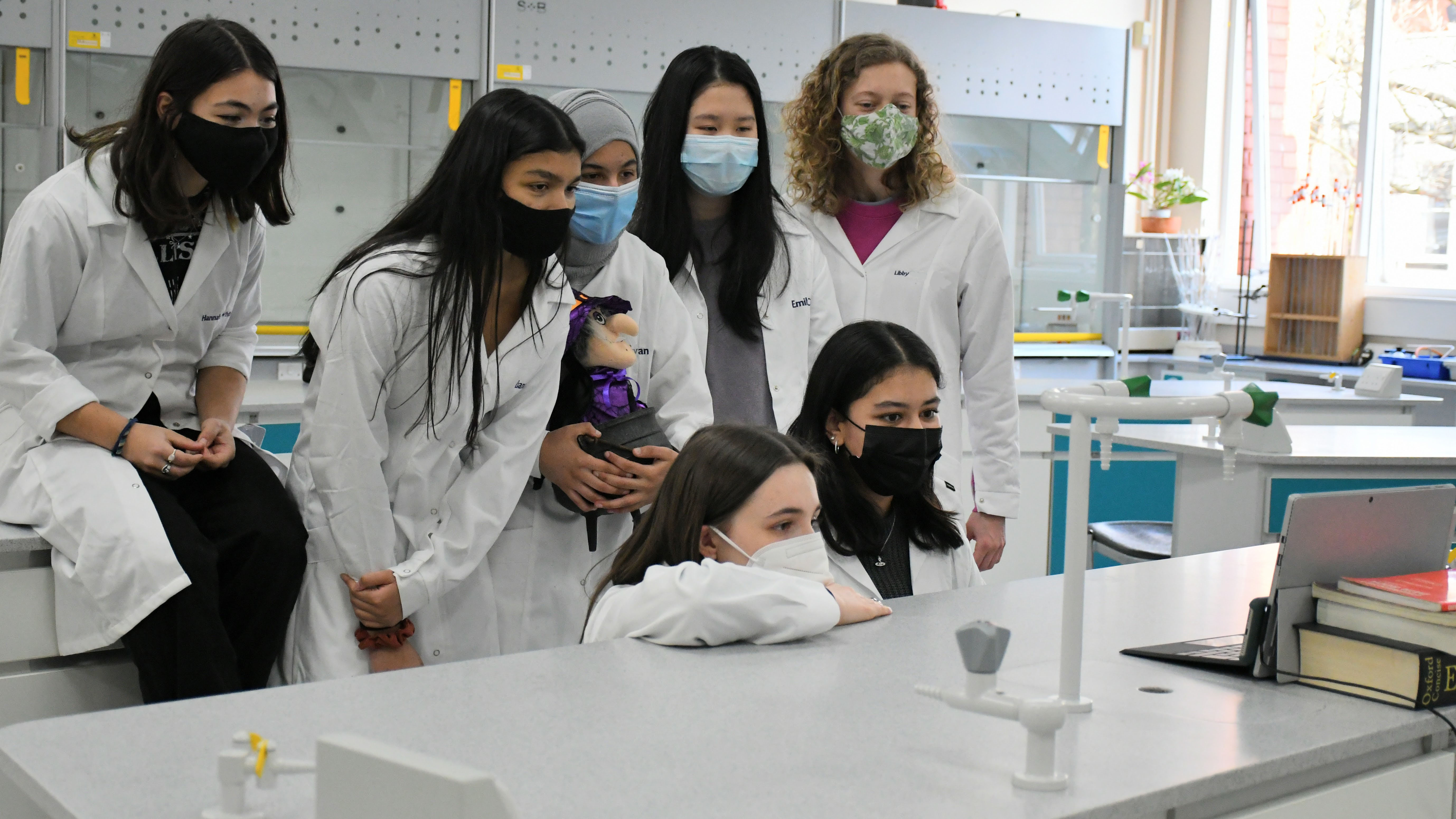Spotlight On: Withington Girls’ Science Communicator Programme

Lisa Bradshaw, head of science at Withington Girls’ School, explains how a peer-led partnership initiative is supporting younger pupils with STEM learning.
In recent years, we have offered our sixth form students the opportunity to contribute to the partnership work of our school and develop skills in science communication, teamwork, leadership, and also gain a Gold Crest Award as part of our Science Communicator Programme.
Our programme starts in January with an online workshop hosted by the education team from Explore Science, a science discovery centre in Wrexham, which gives our students an insight into communicating science to different audiences. With the disruption caused by COVID, we had to significantly rethink the ways in which our students and those of our partnership schools could get the most out of the activity, but the end result was equally as rewarding.
We have had 26 pupils work through the programme this year in four groups. One group delivered three one-hour sessions over Teams to a group of Year 6 students at a local primary school, enabling those pupils to have an after-school science club. The lower sixth pupils faced significant challenges with this as they had no idea of the classroom layout, had to ensure equipment was quarantined before and after use and had to explain how to complete experiments virtually. Having designed three action-packed sessions which included static electricity, simple circuits, treasure map reflection, making a periscope and cotton ball launchers, they had to ensure that the equipment needed was delivered to the local school, carry out a full risk assessment and brief the classroom teachers on what they would need to do. There were definitely some nerves before each session but the buzz at the end was absolutely amazing and well worth all the effort. Questionnaires were completed at the end to gain feedback from the pupils, and it was clear they had thoroughly enjoyed the sessions. After writing a detailed report of their project, the sixth form students were awarded a Gold Crest Award with the following feedback from the assessors:
“Your work showed what a great team you were and also demonstrated how real science could be taught in primary schools using the support of STEM ambassadors like yourselves. Not all primary teachers are science trained so this is often a neglected area of the primary experience. Your project planning was excellent, and the lessons looked really interesting and challenging for the young people involving them to investigate themselves. This was a project with real impact on this school.”
Our further three groups each focused on delivering a ‘flash bang show’. Over lockdown, the lower sixth pupils planned three superb kitchen chemistry shows that could be performed and filmed at home. The featured experiments were all kitchen chemistry based and involved reagents that could be safely handled by younger students either at home or in school. At the point of presentation to local primary schools, the shows featured a mix of live and recorded deliveries, each adapted to suit the respective audiences. At one school, the show included practical opportunities for the children to make their own lava lamps and slime and the lower sixth pupils prepared a set of reagents, instructions for teachers and pupils, a certificate of participation and questionnaires to assess learning and enjoyment. The recordings of these shows are also available to the Withington community for other local schools to enjoy.
All our pupils gained a huge amount from the projects, as did pupils from local schools – we are looking forward to seeing what our new lower sixth pupils devise this year.
“Our science department has been at the heart of our partnership programme for many years,” says Clara Edge, partnerships coordinator at Withington Girls’ School. “The pandemic has not stopped our scientists and we are delighted that this situation has enabled us to transfer some of our educational programmes for our partner primary schools to a hugely successful digital format.”


